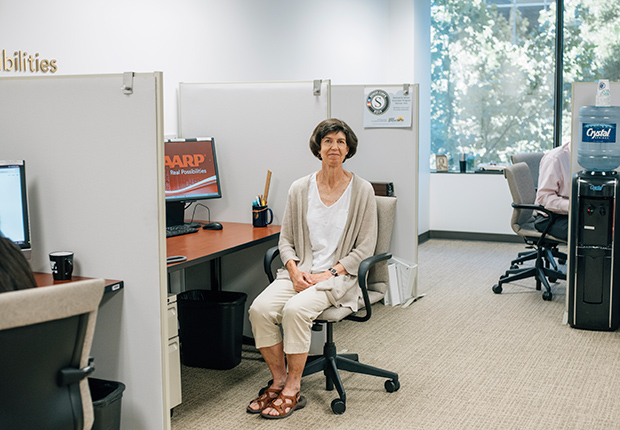AARP Hearing Center

By Vanessa Ho
The 88-year-old man, an Italian immigrant, got an urgent call from his grandson saying he was in jail and needed bail right away. The man quickly wired $2,000. Then he learned the caller wasn’t his grandson but a scammer who preyed on his emotions and even called him Nonno, Italian for grandfather.
“It was cruel,” said Valerie Laidlaw, 63, of Mercer Island, a volunteer with the AARP Foundation Fraud Fighter Call Center who counseled the victim.
The case showed the manipulative tactics behind impostor frauds, a growing problem with more than 400,000 cases reported to the Federal Trade Commission last year. Nearly 9,800 of the complaints were from Washington residents, making it the state’s most common type of reported fraud
“Scammers are very good at what they do and get a lot of practice,” said Laidlaw, one of 25 volunteers at the Seattle center. “They know exactly what buttons to push.”
The Fraud Fighter Call Center (877-908-3360) is a national program, based in Seattle and Denver, that gives callers information and guidance on how to prevent fraud and steps to take if victimized. Last year, volunteers helped 18,000 consumers, many of whom called to ask questions, report fraud or get help after they or loved ones were scammed.
A recent AARP Washington survey revealed the prevalence of impostor scams while finding gaps in consumer knowledge and an overly confident attitude in detecting fraud. Most of the 800 adults surveyed in May said they had gotten a fraudulent email or call in the previous year. Nearly 90 percent said they were “extremely,” “very” or “somewhat” confident they could spot a scam.
But when they took the “Impostor IQ” quiz ( states.aarp.org/what-is-your-impostor-iq)—10 questions on laws and online safety—most failed. More than three-fourths of people got four or more answers wrong.
“We call this the illusion of invulnerability,” said Doug Shadel, state director of AARP Washington and an antifraud expert. “It’s this idea that ‘I know people fall for scams, but I won’t.’ That makes you really vulnerable.”
To fight impostor fraud, AARP Washington is holding free events with the state attorney general’s office, Microsoft, the FTC and BECU, the state’s largest credit union. The events feature video interviews with former scammers who share how they tricked victims.
One ‘boiler room’ call center in Mumbai, India sent 50,000 voicemails a day, according to a former scammer who pretended to be IRS officer ‘Adam Smith.’ Another scammer sold bogus anti-virus software from Florida, after convincing victims their computers were filled with problems.
“More and more of the scammers are using fear and intimidation, as opposed to ‘Here’s how to get rich,’ ” Shadel said.
What you don’t know
The survey found that nearly half of respondents didn’t know that tech companies don’t contact consumers about computer viruses. Most didn’t know that it’s illegal to play a foreign lottery in the United States. And more than 70 percent thought a lock icon on a website guarantees secure transmission of information. (It doesn’t).
Scammers often exploit consumer ignorance, posing as a relative in trouble, an IRS agent, a computer-company tech warning of a virus, or a bank representative seeking to fix a “problem.”
“We tell people, ‘Don’t respond if you feel that fear part of your brain. Let your rational mind kick in,’ ” Shadel said. “Be especially suspicious if you did not initiate contact.”
Laidlaw said her time at the call center “can often be very depressing work, because you’re talking to people who’ve sometimes lost hundreds of thousands of dollars. But we can give them some help, and that’s gratifying.”
The next “Unmasking the Impostors” event will be in Spokane on Sept. 29. Register at aarp.cvent.com/SpokaneUnmasking or call 877-926-8300.
Vanessa Ho is a writer living in Seattle.































































